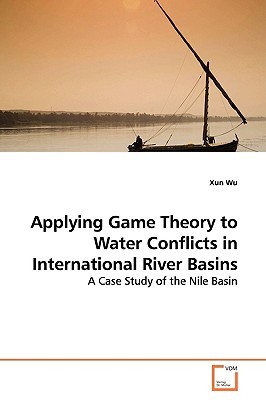
- We will send in 10–14 business days.
- Author: Xun Wu
- Publisher: VDM Verlag
- ISBN-10: 363913785X
- ISBN-13: 9783639137859
- Format: 15.2 x 22.9 x 0.8 cm, softcover
- Language: English
- SAVE -10% with code: EXTRA
Applying Game Theory to Water Conflicts in International River Basins (e-book) (used book) | bookbook.eu
Reviews
Description
Nation-states rarely go to war over water, but it is also rare that water conflicts in an international river basin are resolved through cooperation among the riparian countries that use the shared resources. One interpretation for the lack of success is that the magnitude of potential gains from cooperation is largely unknown for most international rivers, and riparian countries may have an incomplete or even inaccurate knowledge of cooperative opportunities. In addition, gains from cooperation will mean little to individual riparians unless the required cooperative behaviors are incentive compatible. Game theory offers useful insights for assessing cooperative solutions for water conflicts in international river basins. Applying cooperative game theory concepts such as core, nucleolus, and Shapley value to Nile water conflicts, we examine the incentive structure of both cooperative and noncooperative strategies for different riparian countries and establish some baseline conditions for incentive-compatible cooperation in the Nile basin.
EXTRA 10 % discount with code: EXTRA
The promotion ends in 16d.17:22:02
The discount code is valid when purchasing from 10 €. Discounts do not stack.
- Author: Xun Wu
- Publisher: VDM Verlag
- ISBN-10: 363913785X
- ISBN-13: 9783639137859
- Format: 15.2 x 22.9 x 0.8 cm, softcover
- Language: English English
Nation-states rarely go to war over water, but it is also rare that water conflicts in an international river basin are resolved through cooperation among the riparian countries that use the shared resources. One interpretation for the lack of success is that the magnitude of potential gains from cooperation is largely unknown for most international rivers, and riparian countries may have an incomplete or even inaccurate knowledge of cooperative opportunities. In addition, gains from cooperation will mean little to individual riparians unless the required cooperative behaviors are incentive compatible. Game theory offers useful insights for assessing cooperative solutions for water conflicts in international river basins. Applying cooperative game theory concepts such as core, nucleolus, and Shapley value to Nile water conflicts, we examine the incentive structure of both cooperative and noncooperative strategies for different riparian countries and establish some baseline conditions for incentive-compatible cooperation in the Nile basin.


Reviews